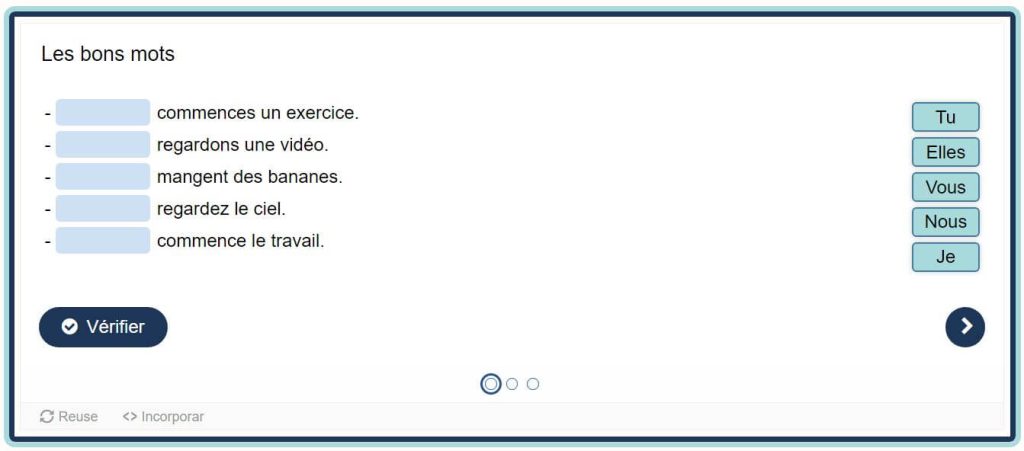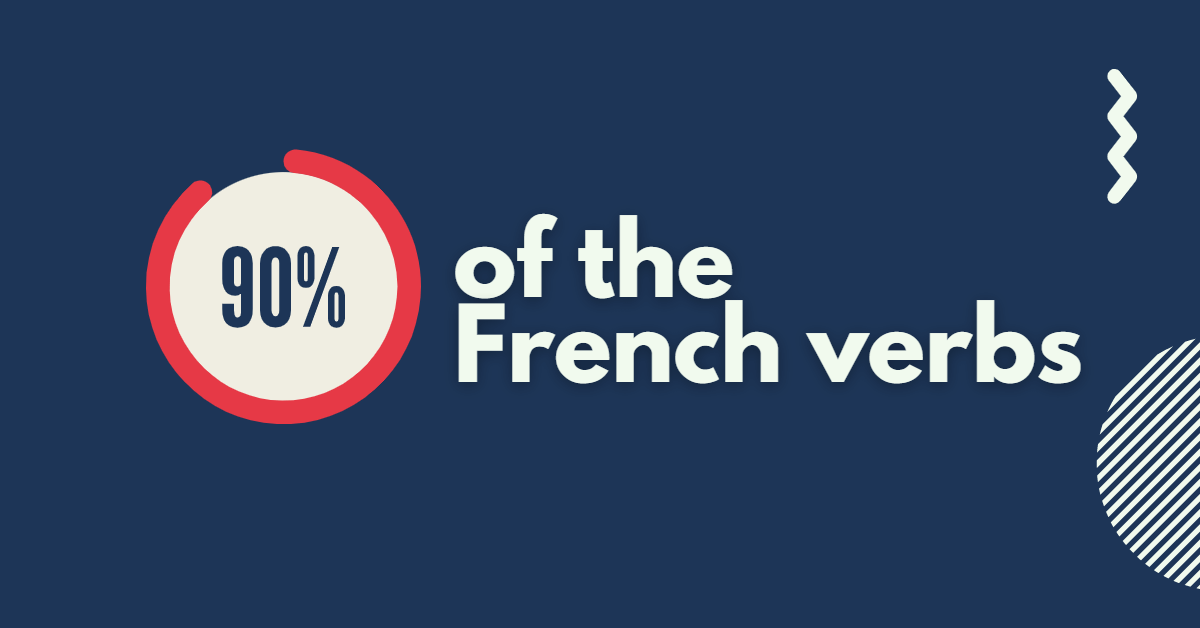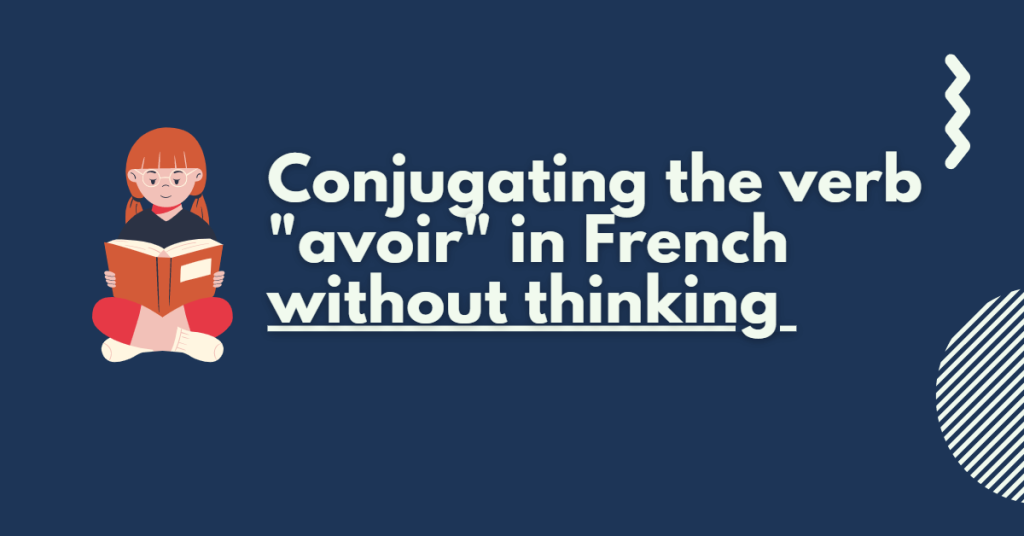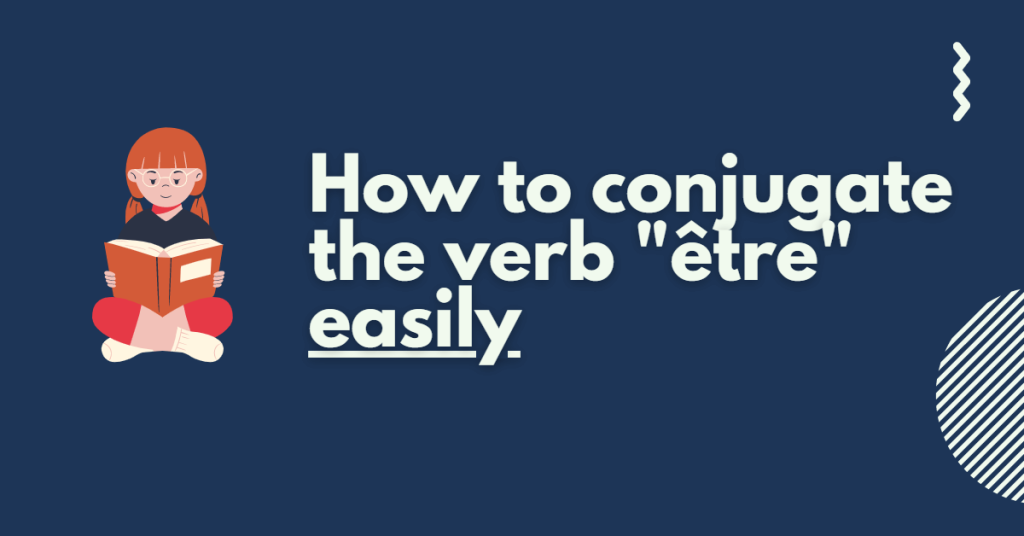Yes, 90% of French verbs… What if I told you that you could learn the conjugation of these verbs in less than an hour? We’re talking about verbs that end in -er!
The conjugation of French verbs in -er
There are three groups of verbs in French, let’s start with the most common (90% of verbs), which is also the easiest to learn! This is the first group, that is, verbs that end in -er
Le verbe “commencer”
| Je | Commenc – e |
| Tu | Commenc – es |
| Il / Elle / On | Commenc – e |
| Nous | Commenç – ons |
| Vous | Commenc – ez |
| Ils / Elles | Commenc – ent |
Illustration – listen carefully
“Je commence la leçon. Aujourd’hui, nous commençons la leçon ensemble, et personne ne nous regarde.”
“I start the lesson. Today, we start the lesson together, and no one is looking at us.”
Other French verbs in -er :
- Regarder (olhar) : je regarde, tu regardes, il/elle/on regarde, nous regardons, vous regardez, ils/elles regardent.
- Manger (comer) : je mange, tu manges, il/elle/on mange, nous mangeons, vous mangez, ils/elles mangent
Did you notice that in the first person plural “nous”, we added an “ç” to “nous commençons” and an “e” to “nous mangeons”. Do you know why?
Explanations : in the case of verbs ending in “ger”, such as “manger” and “nager”, in the 1st person plural (nous), an “e” is added between the root and the ending, so that the “g” keeps the “j” sound, because if we wrote “nous mangons”, the “g” would have the same sound as in the word “cat”. But that “e” is mute, “-geons” should be read as “jõ”.
For verbs ending in “cer”, like “placer”, still in the 1st person plural (nous), the “c” is replaced by “ç” to keep the “s” sound (“je commence”, but “nous commençons”).
Now practice the conjugation of the French verbs in the first group.
Register for free to do the exercises and access +1000 exercises and videos in French.





